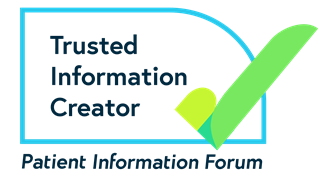COVID-19 vaccine safety and side effects
The COVID-19 vaccine is safe for people:
- With Crohn’s or Colitis
- Taking medicines that weaken their immune system
You may get some side effects after the COVID-19 vaccine. The most common ones are:
- A sore arm where you had the vaccine
- Feeling tired
- Headache
- Muscle aches
People with Crohn’s and Colitis have similar side effects to the general population. Side effects are usually mild.
COVID-19 vaccines are not live vaccines. They do not contain any live virus and cannot infect you with COVID-19.
You can report vaccine side effects through the MHRA Yellow Card. Speak to your GP or IBD team if you’re worried about any side effects.
COVID-19 vaccines and Crohn’s or Colitis flare-ups
There’s no evidence that the COVID-19 vaccine will cause a Crohn’s or Colitis flare-up. Research shows some people had a flare-up soon after having the vaccine. But a similar number of people who did not have the vaccine also had a flare-up
How well the vaccine works in people with Crohn’s or Colitis
Having Crohn's or Colitis does not make the vaccine less effective. If you’re taking 5-ASAs or no medicine at all, the vaccine should work as well as someone who does not have Crohn's or Colitis. The vaccine works less well in people taking certain immunosuppressant medicines.
Vaccines pretend to be a virus, to trick your immune system into learning how to fight it. If you then come in to contact with the real virus, your immune system already knows how to attack it. This can protect you from becoming severely ill from the virus. If you’re taking immunosuppressants, your immune system might not respond as well to the vaccine as other people’s.
Some people may not get full protection from the COVID vaccine, known as a reduced response. This includes people taking anti-TNF medicines, such as infliximab or adalimumab, or the JAK inhibitor tofacitinib. We do not know whether this is the same for the other JAK inhibitors filgotinib or upadacitinib. More research is needed.
A reduced vaccine response can mean:
- Fewer antibodies. Antibodies are made by your immune system and protect you against infection.
- A reduced T-cell response. T-cells are a type of white blood cell that fight infections.
- More ‘breakthrough infections’. These are infections with COVID-19 after a person has been vaccinated.
- Protection after having the vaccine does not last as long.
We do not know if other immunosuppressants have a similar effect. But research suggests that azathioprine, ustekinumab and vedolizumab do not reduce vaccine response in people with Crohn’s or Colitis.


